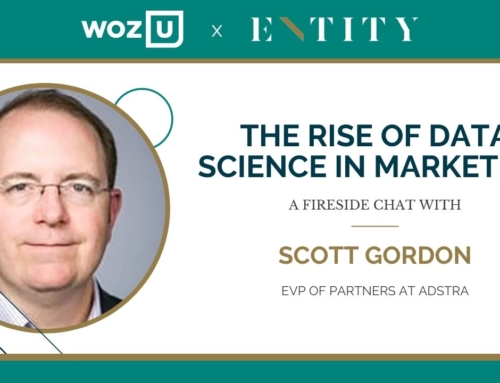Data Science is “the process of extracting insightful and impactful conclusions by organizing, sorting, and analyzing large amounts of data using a variety of mathematical and computational techniques.”
What Exactly Is Data Science?
If you search for the definition of “Data Science” online, you’ll find a myriad of different answers from different people, including many who admit they don’t know how to define it at all. This may seem quite odd, considering that universities offer full degree programs and coursework in the subject. How, then, could Data Science not have a proper definition?
One of the key reasons why many have a tough time defining Data Science is because they focus on the tools being used and not on the intended result. Ironically, Data Science approaches problems in the exact opposite way. Please let me use an illustration to explain.
Imagine that your car starts making a rattling noise whenever you accelerate. You have no idea what’s causing the noise or where it comes from, but you decide to take it to the mechanic to fix the problem.
You don’t necessarily care what tools the mechanic uses; it could be a socket wrench, a screwdriver, or a pair of pliers. You also don’t care what techniques he uses to fix the car and what parts are involved. All that matters to you is that the car stops rattling and that your daily commute is a bit more peaceful (and that it doesn’t cost a fortune).
Similarly, Data Science borrows tools from many established fields, like statistics, software engineering, machine learning, and old-fashioned common sense. These all make up the Data Scientist’s toolkit. However, the organizations that hire Data Scientists aren’t really concerned with how they arrive at the answer. They simply care about the results.
Therefore, we would define Data Science as “the process of extracting insightful and impactful conclusions by organizing, sorting, and analyzing large amounts of data using a variety of mathematical and computational techniques.”
Sound intriguing? If so, please keep reading. Below, we’ve compiled a list of characteristics of Data Scientists that will help you determine if the field is right for you.
#1: You Enjoy Mathematics and Statistics
In our previous article, “Data Science Is the Career of the Future,” we explained that Data Science isn’t the same as pure statistics. While it leverages these tools, the ultimate goal of Data Science is to organize, analyze, and interpret data in a way that helps an organization accomplish its goals. When dealing with extremely large sets of data (big data), it often involves using AI and Machine Learning.
By making key insights, you can help a business identify where they’re losing money, observe consumer behaviors, and much more. First, your mathematical and statistical skills will be your main tools for getting the job done. Second, your analytical abilities will help you make sense of the data and explain it to your co-workers and superiors.
#2: You’re a Good Communicator
Data Science is just as much about communicating your findings as it is analyzing data sets. After all, data scientists don’t get paid to crunch numbers for fun; they look for actionable insights. Whenever you present an idea or course of action to an organization, you’ll have to communicate it clearly and eloquently.
Leaders will also expect you to make suggestions and create strategies that will lead the organization in the right direction. Tech companies, in particular, are largely data-driven and will look to you to interpret what’s going on and how to improve outcomes. For this reason, you’ll spend a good amount of time talking with decision-makers and colleagues.
#3: You Can Simplify the Complex
One of the most useful skills you can possess is the ability to take complex information and explain it simply. This is important because you’ll have to present your findings to C-suite executives and decision-makers who may not have a background in statistics and analysis.
Explaining things in layman’s terms also requires you to have a complete grasp on your findings. As Albert Einstein once said, “if you can’t explain it simply, you don’t understand it well enough.”
#4: You Like to Code
If you love to code for hours, it’s a good sign that you’ll do well in Data Science. Data Scientists spend much of their time programming in Python, R, Java, and SQL. Rather than using a calculator, you’ll be doing the majority of your calculations in a statistical programming language like R. You’ll also use these tools to visualize the data and make cool charts and graphs.
Additionally, Data Scientists use frameworks for AI and Machine Learning to standardize the process of analyzing large amounts of data. However, Artificial Intelligence or Machine Learning doesn’t just create itself. You’ll need to know how to code in Python and Java using frameworks like TensorFlow to build the programs that will automate your work.
#5: You Want Good Pay
Just like Software Development or Cyber Security, a career in Data Science is very lucrative, which is a great motivator to pursue the field. Of course, pursuing a career for money alone, and not for your passion, would be a big mistake. However, if you’re passionate about Data Science and you love working with numbers, there’s nothing wrong with wanting to see a couple of extra digits in your bank account.
#6: You Work Well Alone and with Others
As a Data Scientist, you will spend long periods of time working alone, as well as working on a team. No matter where a Data Scientist finds his or herself, they must be comfortable in either scenario. If you find it easy to transition between long study sessions and time with friends, Data Science could be a good fit for you. However, if you feel like your ability to concentrate is dependent on your environment, you may find it difficult to be out of your element.
Conclusion
Data Science may not be right for everyone, but it comes with a lot of benefits that make it a very desirable career path. One of the defining characteristics of a job in Data Science is balance. You’ll always have a balance between working alone and in teams; performing complex math and presenting findings to a board; doing analysis manually and coding AI and Machine Learning programs to automate tedious processes.
Above all, Data Scientists are extremely important in our digital society, in which knowledge is power. As a result, the most successful organizations in the world will pay good money for the valuable insights and strategies that you can bring as a Data Scientist. If you’re looking for a lucrative career and you identified with many of the statements in this article, Data Science might just be a great career for you.




